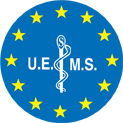The European Commission has released its roadmap to tackle the issue of antimicrobial resistance (AMR) at the European level.
Antimicrobials comprise antibiotics, which are essential medicines for humans and animals, and can also be used as disinfectants, antiseptics and other hygiene products. They have substantially decreased the threat of infectious diseases. Antibiotics are an indispensible tool in medicine and are used in common procedures such as transplantation and chemotherapy.
However, over the years bacteria have become resistant to antibiotics. This resistance has manifested itself in hospital-acquired infections, respiratory tract infections, meningitis, diarrhoeal diseases and sexually transmitted infections. Resistant bacteria can be transferred from animals to humans via the food chain or through direct contact.
Since the 1990s, when AMR was recognised as a serious threat to public health, the Commission has launched various initiatives and actions across sectors, i.e. human and veterinary medicine, food and feed and scientific research. On 17 November 2011 the European Commission adopted a comprehensive Action Plan on Antimicrobial resistance which unveiled seven areas where measures were identified as most necessary and 12 concrete actions to be implemented in close cooperation with the Member States.
The Action Plan covers seven areas, where measures are most necessary:
- Making sure antimicrobials are used appropriately both in humans and animals
- Preventing microbial infections and their spread
- Developing new effective antimicrobials or alternatives for treatment
- Cooperating with international partners to contain the risks of AMR
- Improving monitoring and surveillance in human and animal medicine
- Research and Innovation
- Communication, Education and Training
The proposal also sets out 12 concrete actions to:
- Improve awareness raising on the appropriate use of antimicrobials
- Strengthen EU law on veterinary medicines and on medicated feed
- Introduce recommendations for prudent use of antimicrobials in veterinary medicine, including follow-up reports
- Strengthen infection prevention and control in hospitals, clinics, etc.
- Introduce legal tools to tighten prevention and control of infections in animals in the new EU Animal Health Law
- Promote unprecedented collaboration to bring new antimicrobials to patients
- Promote efforts to analyse the need for new antibiotics in veterinary medicine
- Develop and/or strengthen multilateral and bilateral commitments for the prevention and control of AMR
- Strengthen surveillance systems on AMR and antimicrobial consumption in human medicines
- Strengthen surveillance systems on AMR and antimicrobial consumption in animal medicines
- Reinforce and co-ordinate research
- Improve communication on AMR to the public.
Their success required joined efforts from the EU, the Member States, healthcare professionals, industry, farmers and many others.
The AMR roadmap released provides more details on the operational objectives, concrete activities and milestones.
Disclaimer:
This news arises from information provided external entities to the UEMS. The information and views set out in this news are those of the author(s) and do not necessarily reflect the official opinion of the UEMS. Sole responsibility for this content lies with the author(s) and the UEMS cannot be held responsible for any use that may be made of the information contained therein
- Files:
 road-map-amr_en.pdf 127 K
road-map-amr_en.pdf 127 K
